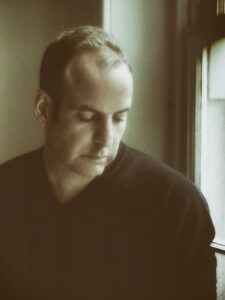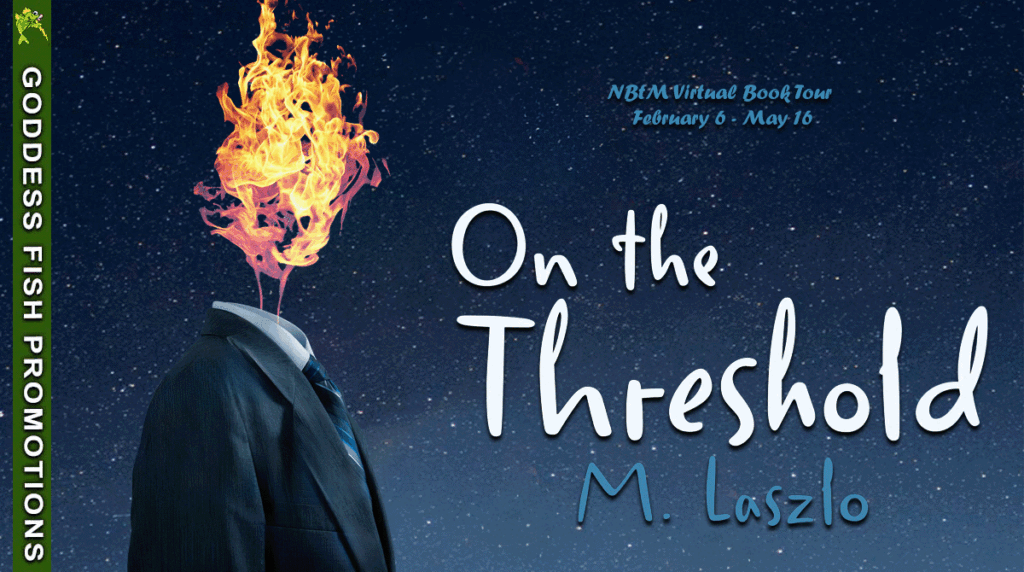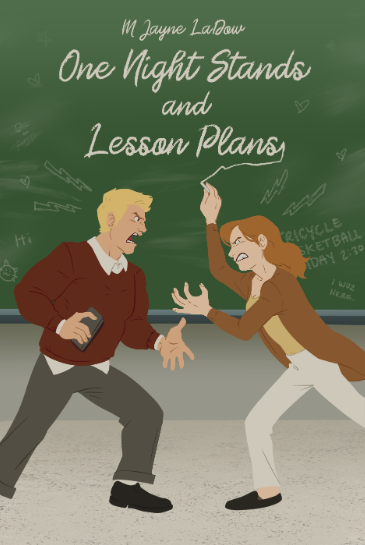This post is part of a virtual book tour organized by Goddess Fish Promotions. M. Laszlo will be awarding a $10 Amazon/BN gift card to a randomly drawn winner. Click on the tour banner to see the other stops on the tour.
Little Pictures of Japan
This book was published by the Book House for Children in Chicago, and it’s an anthology of profound and beautiful haikus from the Shogun era mixed with lovely sketches by Katharine Sturges. This book makes me happy and at peace as no other book can do. Here’s a personal favorite: ‘The end of autumn/And some crows/Perched upon a withered branch.’ By the way, that haiku was written by Basho—arguably Japan’s greatest poet.
Stranger in a Strange Land
Heinlein’s most famous novel has to be on this list. It isn’t just a great, thought-provoking science fiction work. The story quite obviously parallels the Gospel. And that was why it was so fun to read the work: the reader is constantly toggling between Heinlein and whatever the evangelist, always trying to compare and to contrast the two very different messianic tales. Perhaps my favorite scene is the one in which nothing much happens. Jubal Harshaw is at home one night and looks out at his backyard and softly-lit swimming pool. For a moment, he studies the Martian, Valentine Michael Smith, and wonders if he doesn’t resemble Michelangelo’s David—right down to the ‘puppyish’ hands. The writing is beautiful, suffice it to say.
Hesiod’s Works and Days
Read this one in English translation. Loved it. Hesiod records all the basic primordial myths regarding the creation and the rise of humankind. And he writes in the most poetic and lucid way. The story of Pandora’s Box might seem misogynistic to some, but even so, it’s a beautiful tale. And what about the story of Prometheus? Has anyone ever come up with a better idea than to write a book purporting to explain the origin of fire? And has anyone ever come up with a more interesting character than Prometheus? I don’t think so.
The Three Musketeers
Read this one in English translation, too. Normally, it offends me to read a book that makes warfare and violence seem like fun; nevertheless, The Three Musketeers will have to be the proverbial exception to prove the rule. The plot is riveting. No other book can compare. Let’s not forget that according to Aristotle nothing is more important than mythos or plot. The book reminded me of the biblical books of Samuel, too. Still, everything is reversed. In Scripture, young David is loyal to the clergy, and the statist, Saul, is the villain. In the work by Dumas, Dartagnan is loyal to the state—and Cardinal Richelieu is the evildoer.
Frankenstein
Speaking of Prometheus, how can we forget Mary Shelley’s masterpiece? Perhaps the best thing about it is that it’s a triumph of point of view. Everyone gets a say—both the Modern Prometheus and the Creature, too. It seems to me that the best horror stories tend to vary point of view. Perhaps that’s because when we are frightened we notice different, erroneous things than others do. Our imagination runs wild. Who knows. One other poignant thing: the Creature longs for a companion. In some respects then, the book is about loneliness itself.
Obsessed with learning the origins of the cosmos, the actual meaning of life, and the true purpose of civilization, a fine Scotsman named Fingal T. Smyth dedicates himself to the study of Plato’s most extraordinary ideas. Convinced of Plato’s belief that humankind possesses any and all innate knowledge deep within the collective unconscious mind, Fingal soon conducts a series of bold, pioneering occult-science experiments by which to resolve the riddle of the universe once and for all. However, Fingal forgets how violent and perilous the animal impulses that reside in the deepest recesses of the unconscious mind. And when Fingal unleashes a mysterious avatar of his innate knowledge, the entity appears as a burning man and immediately seeks to manipulate innocent and unsuspecting people everywhere into immolating themselves. Now, with little hope of returning the fiery figure into his being, Fingal must capture his nemesis before it destroys the world.
Enjoy an Excerpt
Autumn, 1907: late one morning, some kind of torrid, invisible beast seemed to wrap itself all around Fingal T. Smyth’s body. Each one of his toes twitching fiercely, he exited the castle and scanned the distant, Scottish Highlands. Go back where you came from. As the entity wrapped itself tighter all about his person, Fingal blinked back his tears. I’m melting, I am. Aye, it’s the heat of fusion.
Gradually, the beast’s heartbeat became audible—each pulsation. At the same time, too, the illusory heat of transformation emitted an odor as of oven-roasted peppercorns dissolving in a cup of burnt coffee.
Over by the gatehouse, Fräulein Wunderwaffe appeared—the little German girl wearing a plain-sewn robe and square-crown bowler. In that moment, she no longer seemed to be a sickly child of seven years: her inscrutable expression resembled that of a wise, indifferent cat.
Perhaps even some kind of lioness. Fingal cringed, and he recalled a fragment of conversation from three weeks earlier.
“She suffers from a most unnatural pathology, an anguished, maniacal obsession with cats,” Doktor Hubertus Pflug had explained. “Ever since the poor girl was a baby, she has always regarded it her fate to one day metamorphose into a glorious panther, for she believes herself to be ein Gestaltwandler. Do you know this word? It means shapeshifter and refers to someone who possesses the power to take the form of anything in nature.”
The heat radiated up and down Fingal’s spine now, and his thoughts turned back to the present. Aye, it’s a change of phase. I’m melting into a chemical compound. Despite all, he greeted the girl and willed himself to flash a grin.
About the Author

OLYMPUS DIGITAL CAMERA
Buy the book at AIA Publishing


























Thank you for hosting today.
Thank you for hosting me!
Thank you for stopping by today, and best of luck with your book!
This looks like a novel I will thoroughly enjoy. Thanks for sharing.
Thanks for sharing. Sounds like a good read.
What’s next for you as an author?
What central message or theme were you hoping readers would take away from your book?
Eye-catching cover design